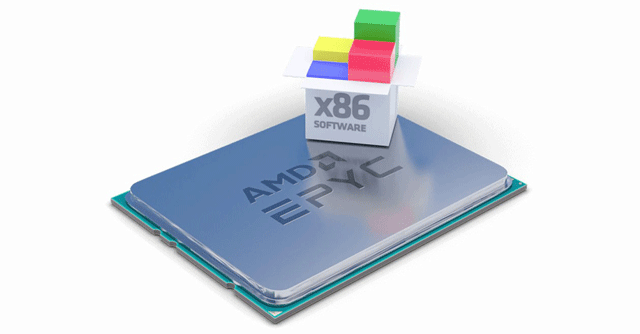
AMD’s new EPYC chips to power Meta’s data centers


Chipmaker AMD has landed two large clients for its data center-focused EPYC chips. The company announced yesterday that Meta platforms, formerly known as Facebook, will be the newest customer for its data center chips. The company also announced the new Milan-X EPYC processor, which ot claims will be 66% faster than the current versions.
The announcement also comes close on the heels of a partnership with Microsoft, which was announced at the latter’s Ignite conference last week. “By using the new Azure Dav5 and Eav5 VMs with the latest AMD EPYC CPUs, customers will get access to leading performance and fantastic price-performance for general purpose and memory optimized workloads,” said Lynn Comp, corporate vice president, Cloud Business Unit, at AMD.
The two deals mean that AMD now has partnerships with all of its competitor Intel’s biggest clients. The company also has deals with Amazon and Google’s cloud businesses, and has been gaining market share on Intel for the past couple of years. According to a report by PC industry research firm Mercury Research, the company accounted for almost 25% of the data center market in the quarter ended September 2021, for the first time since 2006.

Further, data center market aside, AMD is also turning its attention to competitors like Nvidia in the high-performance computing (HPC), or supercomputing market. The company announced new chips for the same, including one called MI200, which competes with Nvidia’s A100 chip and is aimed at improving performance for machine learning (ML) and artificial intelligence (AI) computations.
The new chip will be used in the Frontier supercomputer at the Oak Ridge National Laboratory in the US. “AMD Instinct MI200 accelerators deliver leadership HPC and AI performance, helping scientists make generational leaps in research that can dramatically shorten the time between initial hypothesis and discovery,” said Forrest Norrod, Senior Vice President and General Manager, Data Center and Embedded Solutions Business Group, AMD.
Thomas Zacharia, Director of the Oak Ridge National Laboratory said the partnership will provide an “exascale-capable system” that will be used for scientific discoveries by “dramatically enhancing performance of AI, analytics, and simulation at scale”.

